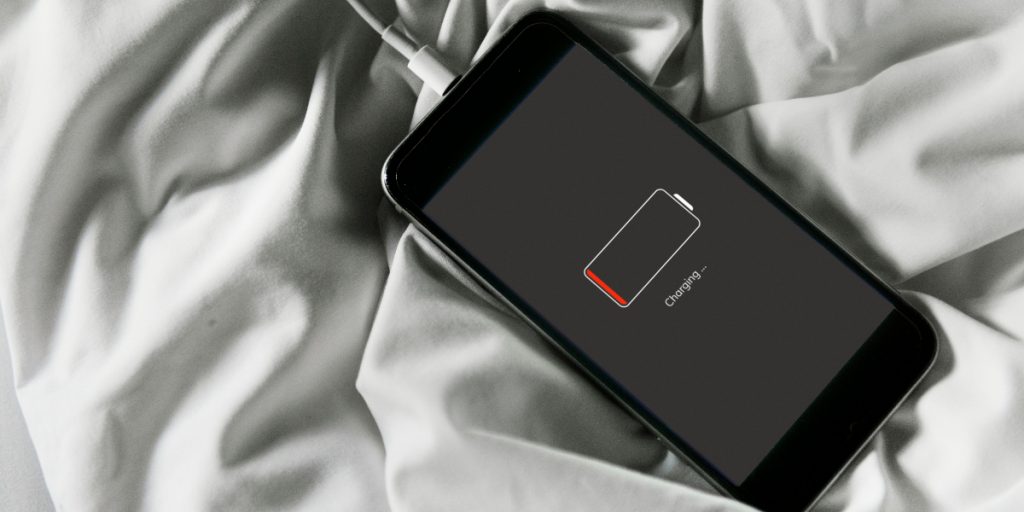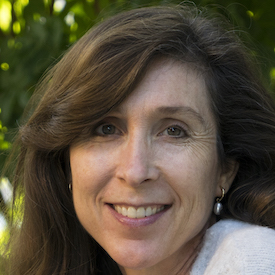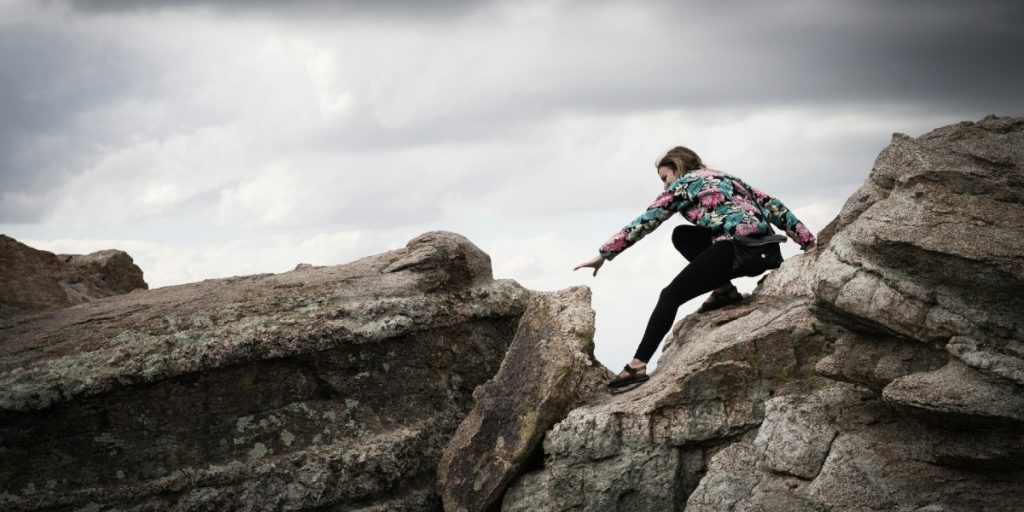Last week Amy Cuddy and Susan Cain, two of Heleo’s Thought Leaders, paired up to host a Q&A to celebrate the release of Cuddy’s Presence. In her book, the Harvard professor explains how one can build confidence by manipulating their body with power-poses. The Facebook-hosted discussion covers a variety of topics, ranging from physical ability and presence, to writing advice, confidence after facing rejection, and Susan Cain’s own area of expertise: introversion. Below are a few key questions and answers between Facebook users and the experts, Cuddy and Cain.
Q: “Can you give insight on how to work on a power walk to show presence and confidence?”
Amy: “Using motion capture technology, we have been doing some studies on powerful walking, and we find that powerful walking, just like powerful posture, is expansive: people move their heads more, swing their arms more, taking longer strides, and have more vertical movement (bounciness). In fact, powerful walking looks a LOT like happy walking. In a study by Michalak and Troje, having people walk in a more powerful/happy way actually caused people to feel happier.”
Susan: “That’s so interesting. So we should not only smile to feel happier, but walk more bouncily.”
Q: “Presence is billed as universal, applicable advice. Have you ever worked with disabled people, unable to adopt some of the most classic “power” stances? What advice on presence would you give to those with limited mobility?”
Trending: Best Happiness Books of 2025 (So Far)
Amy: “GREAT question! Yes, we are doing quite a bit of research on this topic! A woman named Christine wrote to me a couple years ago to explain how, even though she cannot physically adopt powerful postures (she explained: ‘my body is completely nonphysical: I have full sensation but the use of only one finger on one hand’), she imagines herself doing so — and how that makes her feel much more confident.
So we started studying the effects of imagining oneself in a powerful versus powerless posture. To our surprise, the effects on how people felt were enormous. People who imagined themselves in open postures felt confident and relaxed and grounded. People who imagined themselves in closed postures felt anxious, frightened and judged.
Other research shows similar findings: when we are completely still but simply imagine ourselves moving, it activates the motor cortex of the brain. So imagining almost equals doing”
Q: “What advice do you have for people who are just starting their careers and are facing a lot of rejection (academic rejection, lack of jobs in the job market, lots of interviews but no offers)?”
Amy: “Oh, that is really tough, and let me first say: I relate. Let me tell you that you’re not alone: for example, my students at HBS interview for many, many jobs, but only get a couple of offers. Everyone experiences rejection — probably more often than they experience acceptance.
Second, try to keep in mind that every interview, application, opportunity is fresh. It’s new. It’s independent of the previous experience. It’s not inherently tainted, unless we allow it to be.
So (and I know this might seem difficult), try to reaffirm your sense of personal power before each new experience. Do not allow yourself to collapse. Know that by feeling personally powerful, your brain is more likely to interpret these challenges as opportunities instead of threats. That feeling powerful allows us to take more risks, to put ourselves out there, to ask questions, even to feel more optimistic about ourselves”
Trending: Why Rest is the Biggest Productivity Hack for Your Brain
Q: “Do you think that it’s more important for introverted people to practice power poses?”
Amy: “Definitely not more important. Because I don’t believe introverted people feeling any more powerless than others. In fact, I think extraverts often feel a sort of pressure to be “on” all the time — and that becomes a source of anxiety.
I want people to feel comfortable being and expressing their true selves, and I think the interaction between the true self and the situation can differ for extroverts and introverts. For example, I’m probably more extroverted, and I can find meetings with just one person VERY stressful. I find the intimacy a bit intimidating. I’m much more comfortable in front of 1000 people. So I really need to adopt those open, powerful postures before one-on-one meetings,”
Susan: “Yes I hear from many extroverts who say they feel pressure to be on, and to keep conversations going. I think that introverts assume it all comes easily to extroverts… But the truth is that (social) anxiety is part of the human condition.”
Q: “Do you have any tips for aspiring writers? What’s your writing process like?”
Trending: How to Break Free From the Ambition Trap
Amy: “My writing process is: call Susan and ask her for help. Just kidding (sort of). I, to be honest, am still learning. But here are some thoughts: (1) I have always kept a journal — since I was very young. By reading my journal entries, I start to see themes — ways I see the world, ideas that continue to interest me, and so on. This helps guide me. (2) I write notes and ideas on napkins, on scraps of paper, in the margins of books. I write when the spirit moves me to do so (or something like that). (3) I work on the topic that most interests me at the moment/week. So I wrote chapter 4 of my book — the one on impostor syndrome — first. Then I wrote chapter 2, then 6, and so on.
In short: my writing process is organic and messy. And I’m not afraid to have other people go over it with an aggressive red pen.”
Susan “I do the exact same thing (i.e. working on the topic that moves me most at that moment) even if it means jumping around the manuscript. Makes it very hard though to ever have completed chapters to show an editor because with this process no chapter is ever complete until the very end.”
You can read more of the illuminating Q&A on Susan Cain’s Facebook Page.






























